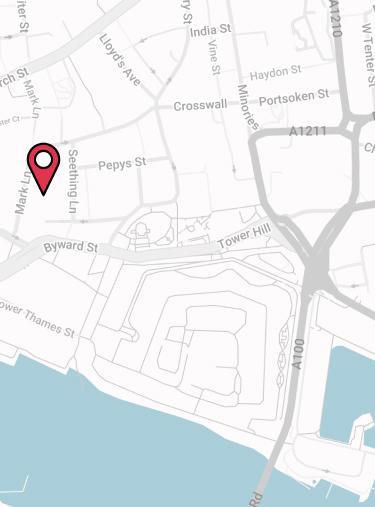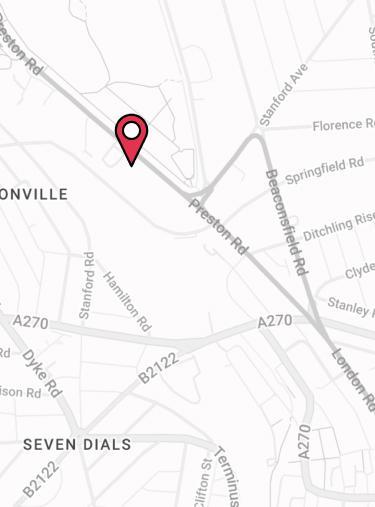
Managing Surplus Cash in a Limited Company: When Cash is Not King
We’ve helped many company directors over the years who’ve built up a successful business and, as a result, are sitting on a significant cash pile within their company structure.
Yet while the success in building up this cash pile should be applauded, we generally caution these clients that holding too much cash within a business can cause issues, not least a drag on profits if this cash is not put to good use in today’s low interest rate environment.
While this can impact your company in the short-term, having too much cash stashed in your company can also cause long-term issues — namely when you look to succession planning and passing your business on after you’re gone.
Many businesses are covered by the rules surrounding business property relief (also known as business relief) when it comes to inheritance tax, meaning there’s no inheritance tax to pay when you inherit a company, but one important and often overlooked problem that arises from holding too much cash in a business could be losing this relief entirely.
This can have a significant impact on an owner’s inheritance tax liability by dragging the company and its assets into the scope of inheritance tax and the associated 40% tax charge.
Business Relief Assets Exempt from Inheritance Tax
Business Relief has been around since 1976 and is now a deep-rooted part of the UK tax landscape. It was introduced to exempt, in full or part, family businesses from inheritance tax.
Should you pass away, the representatives of your estate do not have to sell the company and its assets to pay the death tax. The company could continue with your family stepping in to run it and thus maintaining their source of income.
Business relief is available at 100% on:
- A business or an interest in a business
- Unquoted securities which on their own or combined with other unquoted shares or securities give control of an unquoted company
- Unquoted shares, including shares listed on the Alternative Investment Market (AIM).
Business property relief is available at 50% on:
- Quoted shares which give control of the company
- Land or buildings, machinery or plant used wholly or mainly for the purposes of the business carried on by a company or partnership
- Land or buildings, machinery or plant available under a life interest and used in a business carried on by the beneficiary.
It’s important to note that not all businesses are eligible for business property relief. There is no relief if the business or company is one that “wholly or mainly” deals in securities, stocks or shares, land or buildings or in the making or holding of investments. So this excludes such things as:
- A residential or commercial property letting business
- A property dealing businesses
- A serviced office business.
The Impact of Cash on Business Relief
Cash is an important part of the business and is vital in managing cashflow issues and funding research and development requirements. However, how much cash the company holds affects the company’s “trading status” and thus its ability to claim business relief.
Cash that is not earmarked for future use in the business can in the worse case totally deny business property relief availability for the entire company.
Given this, holding cash in a company because there is “nowhere else to put it” can have a devastating impact on company owners’ estates and the financial wellbeing of their loved ones.
Find > Organise > Simplify

IMPORTANT NOTICE 🧐
The pension lifetime allowance (LTA). was abolished as of 6th April 2023.
Mitigating Inheritance Tax on Business Assets
If you can identify excess cash within the business that you wish to remove to preserve business relief on then there are a couple of options you can consider: Invest cash within the business into business property relief-qualifying assets or tax-efficiently extract cash from the company via pension contributions.
Invest Via the Business
Several investment managers offer products where excess cash is invested by the business into assets that qualify for business property relief. This can immediately reinstate the business relief that would have been lost through holding excess cash as well as retaining the asset within the business which can be sold in the future to provide liquidity if the needs of the company change.
Below is an example of a recent client we helped, who we’re calling John Smith of ABC Company Ltd. He had a company worth £10 million but, after a long and successful period at the helm of his business, had built up excess cash in the business of £4 million.
This wasn’t earmarked for anything in particular — John liked the idea of having cash on hand should there be and cashflow issues within the company and thought it would be protected from inheritance tax as it fell under Business Relief.
Unfortunately, we had to point out that this may not be the case and he could be in for an inheritance tax shock when he passed the company on to his daughters because of this excess pot of cash. We offered the option of placing the excess cash in business property relief-qualifying investments, as illustrated below.
ABC Company Ltd | Option 1: | Option 2: |
|---|---|
Imagine John dies 3 years later and leaves his shares in ABC Company to his daughters | |
As John has held his shares in the company for more than 2 years and because the business qualified for business property relief when he died, the shares can pass free from inheritance tax | |
Surplus cash is subject to inheritance tax at 40% | No inheritance tax liability thanks to the investments in BPR-qualifying assets |
£10 million inherited | £10 million inherited | Inheritance Tax to Pay |
£1.6 million | £0 | Inheritance for John’s Daughters |
£8.4 million | £10 million |
Reducing inheritance tax with business property relief-qualifying investments carries its own risks, specifically around liquidity, the higher risk nature of the underlying and unquoted assets, future legislative change and of course investment performance.
Extracting Cash from Your Company: Pension Contributions
An alternative method of reducing the level of cash within the business is to tax-efficiently extract it via employer pension contributions. Along with corporation, capital gains and National Insurance tax benefits (see our article regarding tax efficient profit extraction), under current legislation pensions also provide an inheritance tax exemption.
By taking cash out of the business and placing it in a pension environment you can re-qualify business relief on the company and build an immediate inheritance tax-exempt pot of money in your own name within a personal pension or Self Invested Personal Pension. This can be invested to grow to assist with your retirement planning as well as legacy planning as pension assets can now be passed down through the generations in an IHT-efficient manner.
One disadvantage of this method is that cash leaves the company and cannot be paid back in should a business need arise, so it must be certain that any contributions paid are made from excess cash.
Furthermore, in return for the very generous tax treatment of pensions, there are limits on what can be paid in each year (the £60,000 annual allowance in the 2023/24 tax year) and how much pension savings you can accrue over your lifetime (the £1.055M lifetime allowance in the 2019/20 tax year).
So on the face of it there seems to be limited scope on how much cash can be immediately removed efficiently, but an allowance called carry forward can boost the amount of pension savings that can be made initially and where there is strong regular cashflow into the business annual pension contributions can be an effective solution.
The carry forward provision means that any unused annual allowance from the prior three tax years can be swept up and moved into a pension environment provided you had been a member of a pension scheme during that time. Where the company has more than one owner or key employees then this amplifies the level of cash extraction.
John hadn’t been contributing to a pension because he was of the opinion that his business would work as his retirement fund, so he had some leeway to play with when it came to pension contributions if he decided to choose this route.
Assuming the full amount of carry forward is available this could be as follows:
Number of Directors | One | Two | Three |
|---|---|---|---|
Available carry forward | £120,000 | £240,000 | £360,000 |
Annual allowance current tax year | £60,000 | £120,000 | £180,000 |
Total pension contribution | £180,000 | £400,000 | £540,000 |
As is the case with business relief it may not be that straightforward as the legislation is complex and interacts with your personal financial position.
A couple of pertinent points that may limit the amount of tax efficient employer contributions are that the annual allowance available can be tapered down to £10,000 (rather than £60,000) for high earners and any employer contributions need to pass the wholly and exclusively for the purpose of trade test for it to be tax deductible.
That said pension contributions can be a powerful way of both increasing the business relief available within the company as well as building a personal pot of money that can be used in retirement or as a legacy planning tool.
Conclusion: Investing Surplus Business Cash
Any planning around the use of excess cash within the business will need specialist and personal advice, not only from a trusted and specialist financial advisor but also in partnership with your accountant and other professional advisers.
The needs of you, your family and your company are all unique and requires a bespoke and tailored solution. To get started on that journey, the team here at Drewberry would be more than happy to help — we’re available on 02084327333.
About Drewberry
Our goal is simple: to improve our clients’ financial wellbeing.
We help our clients take control of their finances by building lasting relationships where we support them to make informed decisions.
We provide financial advice services to individuals and businesses throughout the UK. Whether it’s setting up personal insurance to protect your lifestyle, managing your pensions, investments and other assets to improve your financial future or setting up employee benefits for a company, we’re here to help.
- Topics
- Business Owner
Contact Us
125-135 Preston Road
Brighton
BN1 6AF
Cookies
Drewberry™ uses cookies to offer you the best experience online. By continuing to use our website you agree to the use of cookies including for ad personalization.
If you would like to know more about cookies and how to manage them please view our privacy & cookie policy.








